Dealing with Crohn's Disease can be incredibly challenging. The relentless abdominal pain, frequent diarrhea, and overwhelming fatigue often turn daily life into a persistent struggle. That's precisely why discovering new methods to alleviate these symptoms is critical. This is where red light therapy (RLT) comes in—a straightforward, non-invasive option that may offer relief from the inflammation and discomfort associated with Crohn's. In this article, we'll look into how RLT could make a difference for those who are struggling to keep their symptoms in check.

What Are the Challenges of Living with Crohn's Disease?
Crohn's disease is a type of inflammatory bowel disease (IBD) that causes inflammation anywhere along the digestive tract, most commonly in the small intestine and colon. This chronic condition can lead to a range of uncomfortable and sometimes debilitating symptoms, including:
- Abdominal pain and cramping
- Frequent diarrhea
- Unintended weight loss
- Fatigue and weakness
- Fever
- Mouth sores
- Reduced appetite
Living with Crohn's disease can be tough, as symptoms might suddenly pop up and throw off your day. Those with Crohn's often look for different ways to keep their symptoms in check and avoid unexpected flare-ups. Although there's no outright cure, treatments like medications, changing what you eat, and sometimes surgery can help keep the inflammation down and ease the symptoms.
But these treatments aren't perfect—they don't always get rid of symptoms completely, and they can have side effects. Medications to reduce inflammation or control the immune system could make you feel nauseous, give you headaches, or leave you more open to getting sick. And surgery isn't without its risks; it could lead to more problems and the need for more operations.
That's why many people with Crohn's are adding complementary therapies to their treatment plan. Treatments like red light therapy could offer extra relief and support, without the downsides of regular drugs. People with Crohn's are teaming up with their doctors to try new methods, aiming to find a mix that works best for them, helping them manage their condition better and enjoy life more.
What is Red Light Therapy?
Red light therapy is a non-invasive treatment that exposes your body to low levels of red or near-infrared light. This light is believed to induce a series of biological processes that can help cells rejuvenate and repair themselves.
How Does Red Light Therapy Work?
At a cellular level, RLT is thought to work by stimulating the mitochondria, the part of the cell responsible for generating energy (in the form of ATP). By increasing the function of mitochondria using red light, a cell can produce more energy. With more energy, cells can operate more efficiently, rejuvenate themselves, and repair damage. It's this process that might be particularly beneficial in reducing inflammation associated with Crohn's Disease, possibly leading to reduced pain and discomfort for those affected by this condition.
Can Red Light Therapy Offer Relief for Crohn's Disease?
Looking for new ways to manage your Crohn's disease symptoms? Research shows that red light therapy might help reduce inflammation and provide relief.
Red Light Therapy Can Reduce Pain and Swelling in Crohn's Disease
When you have Crohn's disease, your body often becomes swollen and painful - a process called inflammation. Red light therapy might help reduce this discomfort. The treatment works by shining specific types of light through your skin. These light waves can calm down the cells that cause swelling in your body. While doctors are still studying exactly how well this works, early research shows promising results. Many patients with Crohn's disease have reported feeling less pain and experiencing less swelling after using this therapy.
Red Light Treatment Helps Repair Damaged Digestive Tissue
Crohn's disease can damage the lining of your digestive system over time. Getting this damage to heal is very important for feeling better and having fewer symptoms. Red light therapy can speed up this healing process in two ways: it helps your body create new healthy cells and improves blood flow to damaged areas. When your gut can heal better, you might experience fewer Crohn's flare-ups and longer periods of feeling well. This improved healing could mean more good days and fewer bad ones for people with Crohn's disease.
This Treatment May Help Control Your Body's Defense System
In Crohn's disease, your body's defense system (immune system) gets confused and attacks your digestive tract as if it were fighting off an infection. This causes ongoing inflammation and damage. Scientists have found that red light therapy might help calm down this overactive immune response. The treatment appears to change how your immune cells behave, potentially stopping them from attacking healthy tissue. While researchers are still conducting more studies to fully prove these benefits, the current evidence suggests this therapy could be helpful for many people with Crohn's disease.
We're looking at red light therapy as a possible extra tool for managing Crohn's—not as a cure, but something that might make day-to-day living a little more comfortable.

How to Use Red Light Therapy for Crohn's Disease
Before starting red light therapy for Crohn's disease, you need to understand the basic requirements, safety measures, and proper usage guidelines. Here's what you need to know:
Choosing Your Red Light Therapy Device
There are different gadgets out there for red light therapy—some look like big panels, and others are handheld devices like wands. For Crohn's, you'd likely use these on your abdomen to target where the inflammation is doing its thing.
There are several types of red light therapy devices you can choose from:
Large panels
- Best for treating larger areas of the abdomen
- Available in different sizes for home or clinical use
- Can be mounted on stands, walls, or used on tables
- Prices range from affordable to premium depending on size and features
- Treatment time is usually shorter due to a larger coverage area
- Ideal for consistent daily treatment sessions
Handheld devices
- Compact and easy to move around
- Good for targeting specific problem areas
- Perfect for travel or treatment on the go
- Often less expensive than large panels
- May need longer treatment times to cover larger areas
- Useful for spot treatment and touch-ups between panel sessions
How to Plan Your Treatment Sessions
1. How Long Should Each Treatment Last?
- Start with 5-10 minutes per session
- Gradually increase to 15-20 minutes if needed
- Monitor your body's response
2. How Often Should You Use Red Light Therapy?
- Usually 3-5 times per week
- Space sessions at least 24 hours apart
- Maintain consistent treatment times
3. Where and How Should You Position the Device?
- Position the device 6-12 inches from the treatment area
- Focus on areas where you experience the most symptoms
- Keep the device stable during the entire treatment
What Safety Steps Should You Take?
Always consult your doctor before starting treatment, especially if you:
- Are pregnant
- Have light-sensitive conditions
- Take medications that increase light sensitivity
- Have active severe inflammation
How Should You Watch for Side Effects?
- Normal reactions: mild warmth during treatment
- Expected: slight skin redness that fades within hours
- Stop treatment and consult a doctor if you feel any unusual discomfort
What Are the Basic Safety Rules to Follow?
- Use protective eyewear during treatment
- Follow the device manufacturer's instructions
- Keep the device clean and well-maintained
- Keep a treatment diary to track your progress
- Consult your doctor if you notice any concerns
Consider Red Light Therapy for Crohn's Disease Treatment
If you're experiencing frequent discomfort and inflammation from Crohn's disease, red light therapy might help reduce your symptoms. While this treatment isn't a cure for Crohn's disease, many patients find it helpful when used alongside their regular medical treatments. Before starting red light therapy, please talk to your doctor about whether this treatment could work for you. With proper medical guidance, red light therapy could be a useful addition to help you feel better and improve your daily life with Crohn's disease.



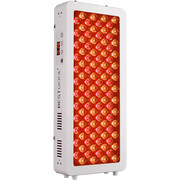









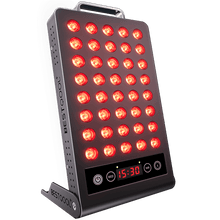
 Small
Small
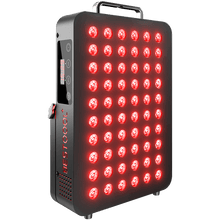
 Moderate
Moderate
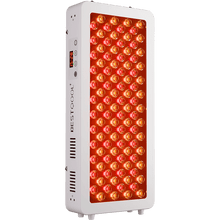
 Moderate
Moderate
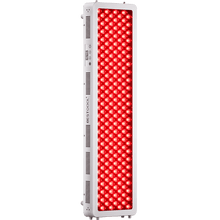
 Moderate
Moderate
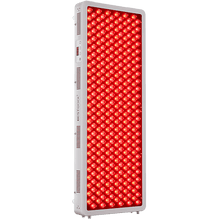
 Full
Full



